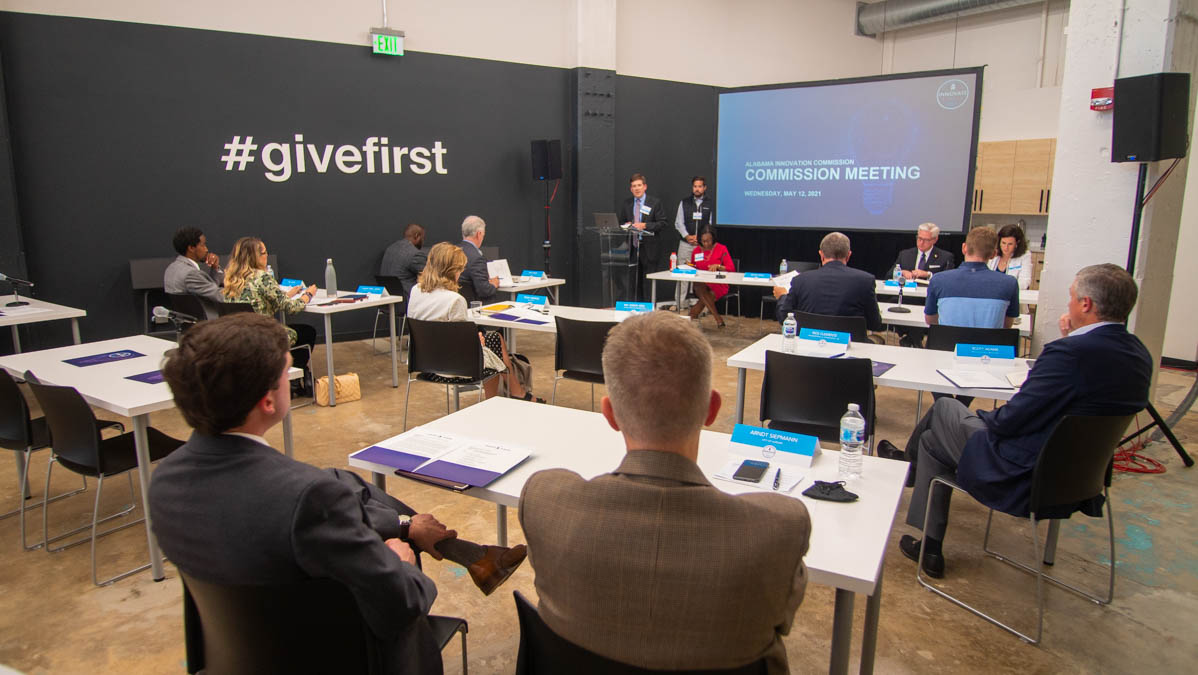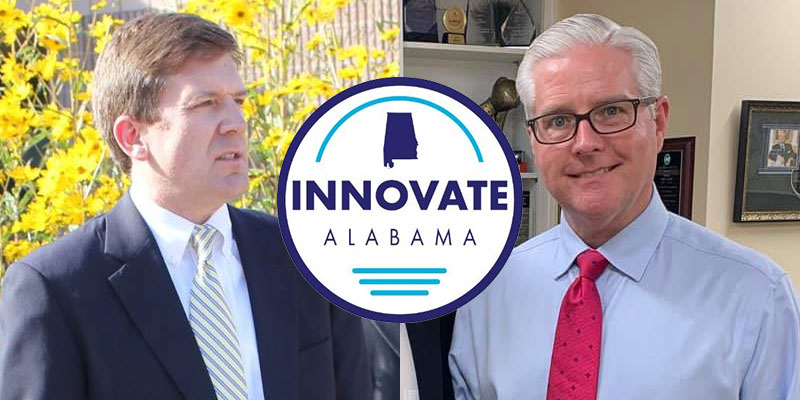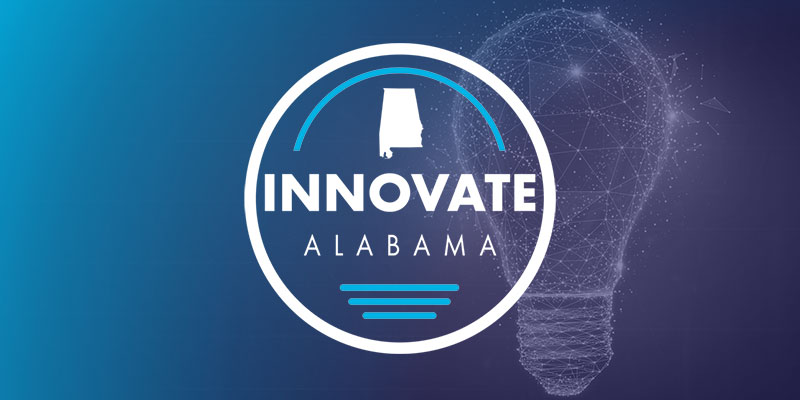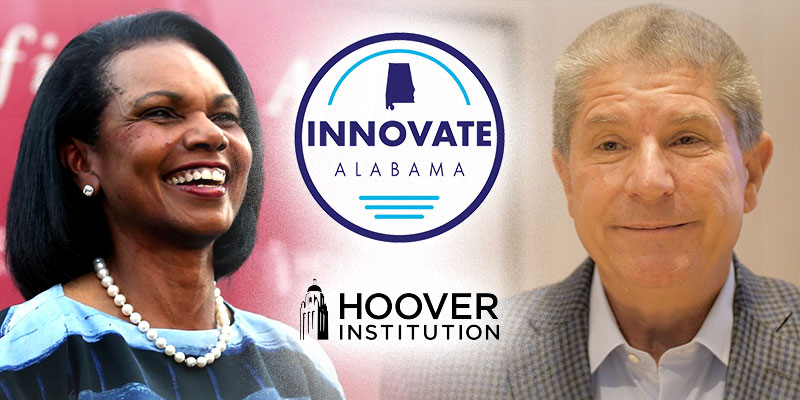Entrepreneurs and business leaders looking to start and grow their businesses now have more opportunities and support in Alabama.
That message was the central theme Wednesday during the Alabama Innovation Commission‘s meeting at the Techstars Alabama EnergyTech Accelerator in downtown Birmingham. The commission met to review its successes and map out goals for the remainder of 2021.
“To be at the midway point and to have the progress that the commission has made is absolutely incredible,” said Greg Barker, president of the Economic Development Partnership of Alabama. “There’s been meaningful legislation that has been passed, and then to outline what we’re going to do going forward, the way we’re going to try to help Alabama innovate is really been stellar to observe.”
Alabama Innovation Commission plans for future from Alabama NewsCenter on Vimeo.
The commission, also known as Innovate Alabama, was created in July 2020 by Gov. Kay Ivey to give innovators a platform to engage policymakers, exchange ideas and identify policies that promote innovation. A focus of the commission during the first nine months was developing policies to increase entrepreneurship, spur innovation and enhance technology accelerators, in addition to addressing the challenges and red tape that startup companies often face. The result of those discussions was plans to establish the Alabama Innovation Corp., an innovation to support statewide entrepreneurship, rural businesses, research and development at existing companies, and provide access to advanced technical skills that will drive the future workforce. The Alabama Legislature approved the plans May 6.
“What I’m excited about with the corporation is that these ideas that are generated in the commission have a place to go,” said Peggy Sammon, CEO at GeneCapture. “I’m hoping that it is a real engine – not a top-down engine but an engine that brings the ideas in the state up and really supports what’s happening in the state because we’re not trying to create something brand new. We’re trying to take advantage of what is working and help support it.”
The legislature also approved allowing the new corporation to make matching grants of up to $250,000 for businesses and organizations that received federal Small Business Innovation Research grants or Technology Transfer Research grants.
“It’s putting additional resources in the hands of the people that are really trying to be innovative,” said Charisse Stokes, executive director of TechMGM. “We look at the small business community and realize that they do need mentors, but they also need those resources that can help to guide them through the process. By having some of the statewide matching funds, it incentivizes those businesses where they can now start to scale and do even more to make some of those dreams come true.”
State Rep. Bill Poole is chairman and State Sen. Greg Reed is vice-chairman of the commission, which now turns its attention to creating a success plan for the corporation and delivering a comprehensive innovation policy report to the governor by Oct. 31.
“I think the key thing is to finish what we started,” Barker said. “When you think about the things that the commission has outlined that we’re going to do, I really do think we’ll be a lot better at securing the right kind of sponsored research for Alabama. I think we’ll do a lot better at commercializing that research and those technologies. I think we’ll do a lot better at supporting existing businesses as they’re looking for ways to innovate, and I think we’ll be a lot better at attracting innovative companies to Alabama.”
“A two-year plan for the corporation would be a very good accomplishment for the commission,” added Sammons.
Stokes said strengthening public-private partnerships is key to the success of the commission’s work.
“It’s very critical,” Stokes said. “It makes a significant impact on our economy but it also has the ability to bridge the gap between some of your urban areas, your rural areas, but then also through different industries. It also gives us the ability to leverage – not just the technology, but also leveraging the business aspects of that.”
(Courtesy of Alabama NewsCenter)













